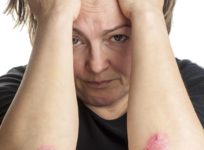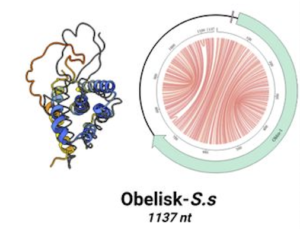The idea is that patients can enroll before they get very sick. Nosheny said that many Alzheimer’s trials, for example, begin too late and waste too much money in how they enroll patients. A patient who is deteriorating will have a hard time remembering exposures or diet patterns that might be clues to disease prevention. Meanwhile, the researchers spend a lot of time meeting and screening patients, only to discover that many of them aren’t even eligible due to other medical conditions.
Individuals in the Brain Health registry take regular cognitive tests. Nosheny sees a future in which biomarkers and other high-tech factors get tracked along with test scores. If she wanted to run a study, she could simply go into her database, choose the diabetic cognitively impaired patients who had signs of impairment in the fifth decade of life and who have a hemoglobin A1c under 6, and have a perfect population ready to go without the newspaper recruitment ads and long search for patients.
From Patient to Bio-Hacker
At the patient-focused program, doctors shared insights on how patients can innovate and hack their own care, providing a more satisfying experience for both doctor and physician.
Donna Zulman, MD, a Stanford internist, related how her complex patients with multiple chronic conditions will make spreadsheets to make sense of their care, since the single-disease focused tools out there do not necessarily apply when one has cancer and diabetes and renal disease at the same time.
She stated that these complex patients desire portable medical records and the ability to videoconference with multiple doctors at the same time, instead of having to attend triple appointments and repeat the same information three times because the physicians aren’t talking to each other. Patients with serious disorders are already overburdened at home, since the self-monitoring and self-care tasks they must execute increase with each new condition.
Patients like e-mail or text messaging to get quick communications done.
Zulman also emphasized that many of these patients—many of whom are taking multiple meds–run into a serious lack of information about how their drugs might interact. Likewise, they lack knowledge about how treatments for one disease might affect a different set of conditions; for example, how a diabetes medication might affect one’s depression.
Since complex patients often seek out holistic and integrative medicine practitioners, such doctors will do well to address these needs as much as possible.
Perfectly timed for the nation’s fascination with Caitlyn Jenner’s transition and the increasing demand for transgender rights and awareness, ePatient Charlie Blotner explained that medical professionals need to be prepared for patients who do not identify as either male or female.
Blotner commented on the insensitivity of traditional medical documentation like intake forms, which list only two gender options: Male or Female. Forms that just have a blank after Gender, said Blotner, indicate that the office could be a “safe place” for a person who is transitioning, transgender, or undecided.
Two apps, RADRemedy and MyTransHealth, connect gender-nonconforming people to doctors who are knowledgeable about their needs and who will not be judgmental. An important point made was that 41% of gender-nonconforming people make a suicide attempt –not just think about suicide.
Blotner expressed that the medical exam room could be a very intimidating place to ask questions or reveal identity, and that sympathetic physicians could become an essential partner to a transgender person’s mental and physical health.
Now that Jenner has put a public face to the transgender community, physicians across the country could find themselves in clinic with patients questioning their gender or wishing to discuss a potential transition.
END
Monya De, MD, MPH (https://twitter.com/medjournalist) is a wellness-focused internist and medical journalist practicing in Santa Monica, CA. Dr. De graduated with her MPH from the University of California, Berkeley School of Public Health, and earned her MD degree from the University of California, Irvine. She received her undergraduate degree with honors in human biology from Stanford University. She is affiliated with Proactive Health Labs, and is a physician for Heal, a California on-demand housecall service. In addition to her clinical work, Dr. De has been a medical reporter for ABC News.







